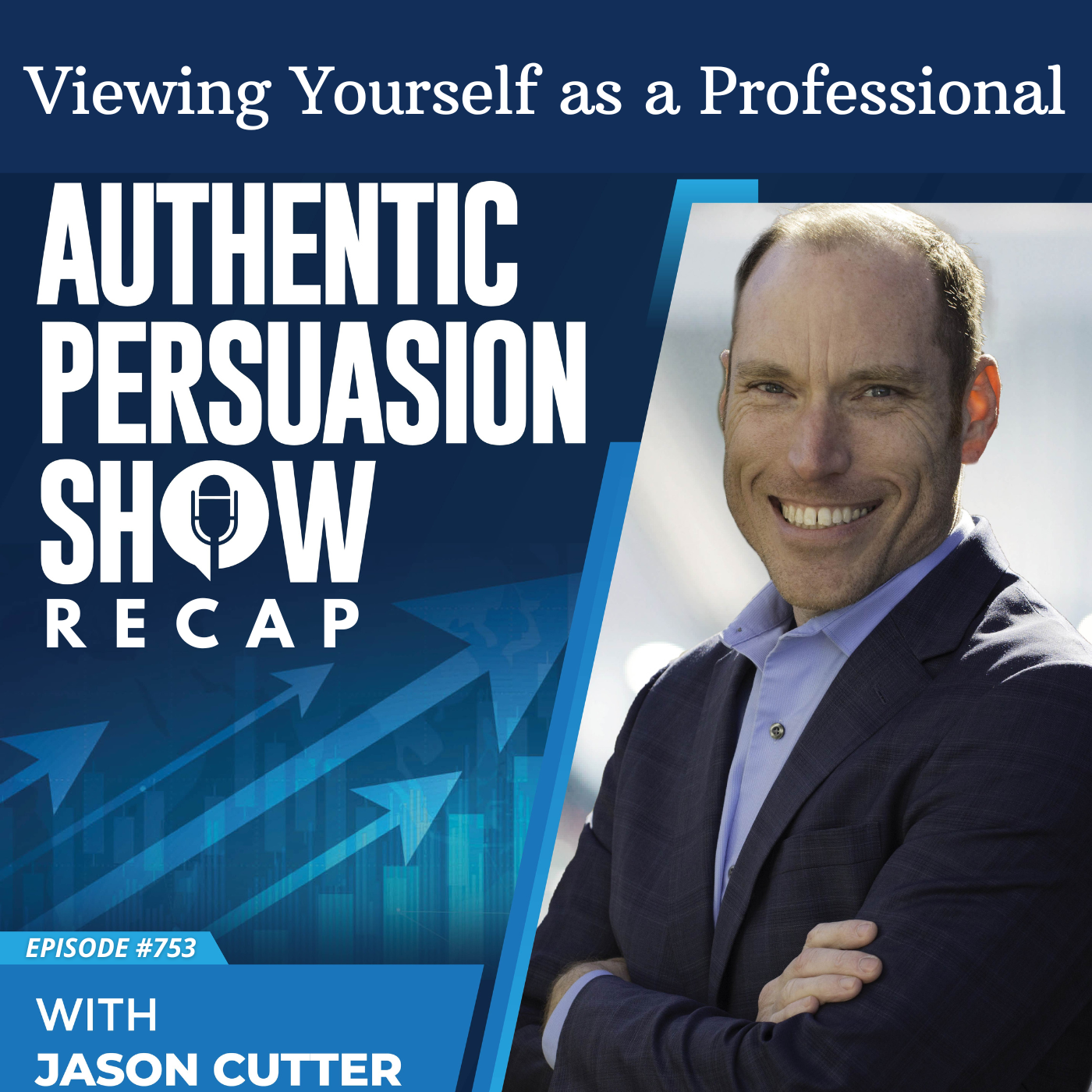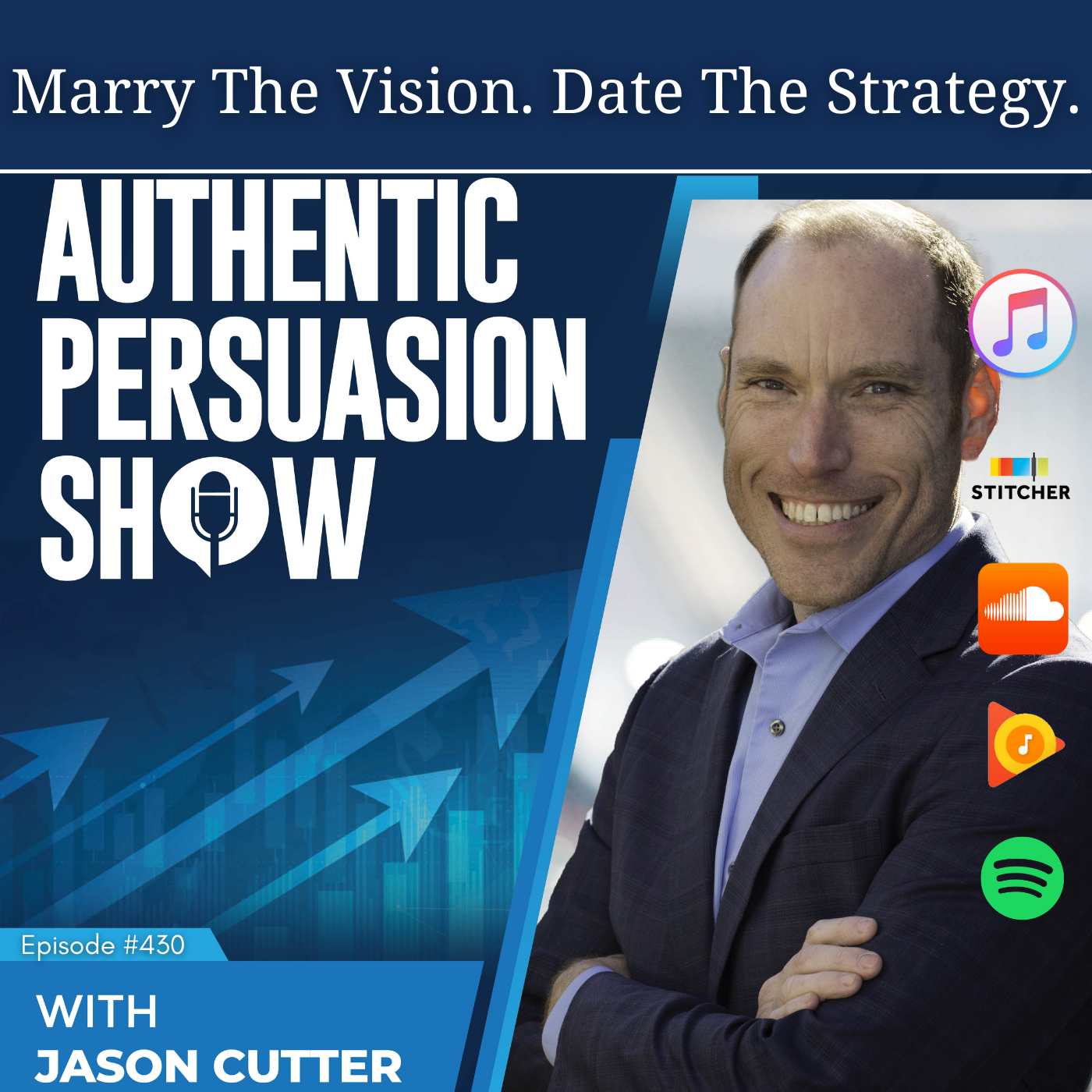Episode Transcript
Jason: Welcome back to the sales experience podcast. My name again is Jason Cutter. If you're joining me for the first time, this is the first episode you've listened to first off, make sure that you check out the other three episodes in my conversation with Maya Conant so that you can get caught up to where we're at in this conversation and then subscribe to the show.
Then go to cutter consulting group. com slash podcast, where you can get the show notes, all of Maya's links. Find out all the other episodes, all the other amazing people I've had on the show or listen to episodes where I'm rambling and talking about sales and trying to help you get better at your sales process or being a sales leader.
So without further ado, let's dive into the final part of my conversation with Maya.
Maya: Make sure that you're talking to those people who've seen it before, but then take that, consolidate the feedback and really roll it out according to priority there.
Jason: Which is also what a good sales professional would be doing with their prospective customers.
It's that same process. That's why for me, I say everything in life is sales. I mean, whether you have the title of salesperson or not, you're doing something along that lines. In my opinion, if you're doing it right, especially relational and long term, you're doing it in a certain framework. So, I wanted to make a pivot, and it just popped in my head, and I've never done this before, but I would like to do a diversity topic sandwich.
So, we started by talking about diversity. Especially getting more women into sales or supporting that or what that might look like. Then we went down the CRO path and I would like to, before we finish, get back to that topic because I think it's fascinating. And I've had some very strong, powerful women on the show, sales leaders, and I think that's fascinating.
I'd love that voice more so people can hear both men that are in sales, women that are in sales feel empowered. What do you think the biggest, some of the challenges or the issues you've seen in your experiences? being a woman in sales and in the Silicon Valley in California in tech sales, which is definitely not the norm.
Maya: Yeah. So, I mean, I think the book Growtopia that was written a couple of years ago really sums up a lot of what people experience here in Silicon Valley. To be completely honest, I've experienced a lot of what is documented in that book. But I think one of the biggest kind of hurdles often is that they feel like outsiders, right?
When you come into an organization, you are the only woman in sales at headquarters. You're uncomfortable and you have to like, try additionally hard to fit in. In a way that like, you shouldn't have to fit in. Everybody should be able to be their own voice, their own person. And remember, from the audience that folks are selling to, that's a diverse audience.
So it's, but who are you as an organization? To have a diverse sales force so that you can have really powerful, complex conversations with this audience that you're selling to that isn't homogeneous. So I learned a lot from the different kind of cultures I've experienced here in Silicon Valley. And really what I.
taken away from it is that don't try to fit in, right? Stand out and then find others to stand out alongside you so that it becomes more acceptable to be who you are and maybe not fall into that bro culture.
Jason: For sure. Why do you think women who get into sales wouldn't be successful? And what tips do you have for them other than the fitting in part, right?
But the actual Sales skills or things that they could be missing that might not come natural or that they just need to turn the switch on. Like what advice would you give to somebody, a female who's getting into sales or is in sales and struggling? Like, what do you have for them? And just, you know, like for everyone listening to this.
Obviously, this is helpful for women, but also for men who are working along with them or managing them or just teammates, like, how do you support that? Like being this collaborative kind of effort.
Maya: Yeah. I mean, I think the number one like misconception is that you have to be cutthroat as a rapper sales leader to be successful.
Like that is not the case. You have to drive process, you have to drive a sequence of events. But it can be done in a really nurturing, educational way that fits the style of the person you're selling to. So I think that's a big one, that's a huge misconception. And then, ensuring that, I just watched Chris Voss Masterclass on the Art of Negotiations, that really you are mirroring.
And that's the biggest takeaway for me, is like, the power of mirroring is out of this world if you do it right. And so, Focusing on that versus focusing on maybe where you fall short or where you don't feel as strong in. I've doubted a lot of my like skills per se over my sales career. And I've realized that I'm the only one who's really doubted those skills.
Folks around me haven't necessarily, honestly, it's like, get out of your own way at the end of the day, because some of those hurdles that you feel internally, like, Hey, maybe I'm not as cutthroat enough. I need to be. Stealing offs and, you know, slashing through the forest isn't always the case.
Jason: One thing I've seen is that salespeople worry about only being able to win if they use manipulation, tricks, tactics, and hard closes.
So they end up struggling to close deals. Make their quota or earn the kind of money that they want to make. If this sounds like your current situation, or maybe you want to make more money in sales without feeling like you're selling, then my upcoming book called selling with authentic persuasion will help in it.
I'm going to take you on a journey to transform from order taker to quota breaker. If you're ready to become an authentic persuader, crush your goals. And create success in your sales career. Then go to jason cutter.com. Again, that's jason cutter.com and pre-order the book today. And a lot of that just comes down to being authentic, which anybody who knows me, that's my whole thing is authentic persuasion.
But it's being authentic. It's knowing what your strengths are and then also being careful not to. Only sell like you like to buy. So that's part of the mirroring thing. But for me, it's, I talk about it where the golden rule is wrong. I mean, people say, treat others like you want to be treated unless you're in a sales role, don't sell to everybody like you like to be sold to.
You want to sell to them how they want to be sold to, like, how do they want to be interacted with? Like what's important to them. And I see a lot of people who enter into sales and they don't like salespeople. They don't like pushy salespeople. And so they do what you're talking about, which is they get into a selling role and they're afraid of being cutthroat.
They're afraid that to be successful equals manipulation and closing tactics and slick closing lines and traps and all of these things. And so they don't do any of it. And they just sit there and die in the corner, slow death of their sales career instead of embracing like what is actually. Wanted by the prospects and what can you actually bring to the table that's you and then doing what you're saying because that's the important part is having a process and following the process and moving conversations forward and not just having a great relational buddy conversation
Maya: and fun fact around that.
So my husband like hate salespeople. It's a joke. He ended up with sales. He just thinks they. You know, or a lot of the misconceptions or things that people, a hundred percent, you know, stereotypes about salespeople. And so I've done a lot of like teaching to him about sales. Doesn't have to look like you think it looks, or historically it has looked.
And so again, that plays into having more diversity in sales of opinion of style in particular. And so, yeah, he ended up with one, but I love it.
Jason: How you did that, how you ended up in that. And obviously everything happens for a reason. So maybe it's too. Change his opinion on it and then also take his opinion and make sure to stop that cycle of what made him that way.
Cause I was the same way. Like I was raised, my parents, my mom was a banker before she retired. My dad was an engineer. All my mom saw as a banker was fraud and scams and people getting ripped off. And so I grew up in a very anti. sales household, just like your husband. That's how I was raised, which is funny about what I do now and helping salespeople.
That's why I do it the opposite. Like on that same crusade that you are, which is, you know, changing the way salespeople operate so that the world sees sales as a profession. Like I say, it's all time. The indication that it's still not at that point is that companies have to give their salespeople titles to hide the fact that they're salespeople, right?
They're account executives. They're business development representatives. They're all of these things other than a salesperson, because they don't want people to feel like it's sales because people don't like sales.
Maya: Yeah. And I love John Barrows wrote with his daughter, this book called, I want to be in sales when I grow up.
And it's a little girl aspiring to be in sales. And like, we need more of that. We don't have enough education when people are young. Like what good salespeople look like and what role models to look up to. And so I'm very passionate about mentorship and how important that is. And I'm reaching out to my network to kind of constantly find new powerful mentors.
But that book is just an example of like, that was the first book I'd ever heard of. That's like inspiring young girls to go into sales.
Jason: Well, because sales and Scott Lee says this in his book, sales is the garbage can of life, right? It's where people go because they didn't have something else or they didn't know what they wanted to do or they fell into it.
And that's not always true. Some people know they want to sell, but it's not what you think of as a kid. Hey, what do you want to be when you grow up? Oh, I want to sell. Right. Unless you're raised by parents who sold or it was in the family. So it's just something you end up in instead of being intentional, which is when it starts to shift to a profession that people treat totally different.
Maya: Yeah, early in my sales career, I had a sales manager who said, this is where C plus students end up. And I was thinking, no, I was an A student and I'm here and I want, I'm going to make a difference and I don't want to be a C student. So.
Jason: Yeah, but you broke the mold, right? And you're doing sales in a completely different way than probably they were trying to teach you or what they expected you to do, which is the old model, right?
It's what those C plus students are doing. because they don't see the world differently. So they're attacking it or just falling into whatever they're being told for sales versus having this thing. And I think anybody can be successful at it. So, well, I appreciate this conversation. Thank you for being on and sharing all this, especially from the CRO revenue ops, all of those different lenses.
So I appreciate it. Thanks for being on here.
Maya: Yeah, this has been a blast. Thanks so much, Jason. Really appreciate it. And, uh, looking forward to connecting with some of you folks.
Jason: Yeah. And so for people listening, so they can find, I'm going to put all this in the show notes. Where's the best place to either find you, things that you're working on, things that you're a part of, especially either sales, diversity, whatever that looks like.
Maya: Yeah. I'm really active on LinkedIn, of course, a little less so on Twitter, but then Women in Revenue is an awesome organization that I've been a part of. And I highly recommend folks. Get into that in marketing sales, customer success, and men are allowed to come to events as well. It's inclusive, but really fabulous organization.
Jason: Perfect. I'll put all that in the show notes. Once again, Maya, thank you for being here. And I appreciate what you're doing to shift the way sales is done on your side.
Maya: Perfect. Thanks, Jason.
Jason: All right. That's it for this four part series with Maya. If you missed any of those parts, you can go back, download, listen to them.
As she shared, there's some places you can find her at. We're going to have all of her links in there. Make sure to join organizations if you're interested in it, that are helping women in revenue ops and women in sales. And let's all focus on inclusion and diversity. And remembering, she said this at the end, and I've had some other people like Reiki Voria on the show that have talked about this, make sure to keep in mind that diversity isn't just looking like you're having it as a part of your organization, where We want to make sure and check the boxes diversity, especially in sales and revenue ops is also about representing your clientele, your customer base.
You're not selling to one homogeneous group of people as Maya pointed out. And just, you want to make sure that. Your sales team can speak to all of those different people that you're wanting to sell to. So that's where diversity is super important for any organization, but especially public facing customer service sales marketing So you want to be able to understand and speak to and relate to all of those customers?
And that's where diversity is super important. So hopefully you got that as the message from the show as always You can go to the website, check out the links and subscribe, share this with people in sales. Let's spread the word of what Maya and I were talking about, which is helping people who are in sales roles, doing things differently such that customers see it as a different thing.
And people like her husband don't hate salespeople anymore because they see salespeople as true professionals. So please join that movement, share this message, share the podcast, make sure everyone knows it. And do what you can to help us shift that. And I'm going to leave you as I always do. Keep in mind that everything in life is sales and people remember the experience you give them.
![[E249] Directing Revenue, with Maya Connet (Part 4)](https://episodes.castos.com/salesexperiencepodcast/images/TSEP-Maya-Connet-Cover.png)


